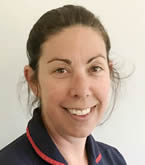An Exciting Future in Advance Clinical Practice

Emma Finlay (e.finlay@nhs.net).
Advance Nurse/ Clinical Practitioner.
Arundel Hospital.
Sussex Community NHS Foundation Trust.
There are approximately 94,000 people aged 65 to 74 years and a further 89,000, aged 75 and over in West Sussex and another 24,000 in East Sussex. Sussex Community NHS Foundation Trust (SCFT) provides both community and inpatient services to this population. Through-out the Costal West locality we have 111 beds (some flexibility in these numbers) over five Intermediate Care Units (ICU) based in Arundel, Bognor Regis, Rustington and Worthing that provides inpatient rehabilitation. The philosophy and model of care is built upon the multi-disciplinary approach to aid patient centred/ goal based care.
Historically the ICU medical model was based on local General Practice (GP's) surgeries having medical responsibility for the patients and a few salaried doctors where they would visit for a short period daily to provide medical input. However, Advanced Nurse Practitioners (ANPs) were introduced into our Intermediate Care Unit medical teams in January 2016. This was in response to an increase in workload and a shortage of applicants for ward doctor roles.
The role of the Advanced Nurse Practitioner (ANP) has been recognised from the early noughties. The role has been developed in response to the shortage of doctors, with opportunities for nurses to expand upon their scope of clinical practice (which may have once been considered the role of the doctors) utilising expert knowledge to practice in a non-traditional manner. The Royal Collage of Nurses (RCN) in 2018 defined Advance Nurse Practice, as nurses that work at an advance level within the clinical, leadership, education and research pillars.
In December 2015, the Trust advertised a secondment role for an ANP at Arundel Hospital (a 19-bedded rehab unit) to help support the medical care at the unit, alongside a GP, employed by the Trust. The advert stated the candidate would ideally have advance skills in physical examination and be an independent prescriber. At the time I was employed at SCFT as Clinical Nurse Lead in Worthing. I meet the criteria and was interested in this role and saw it as an opportunity to further develop my clinical skills and professional development. My colleague and I proposed we were offered the chance to undertake a secondment job share; we both would do half our clinical nurse role and half as an ANP for a 6 month period.
The pilot was reviewed after 6 months and we were able to demonstrate through patient and staff feedback the benefits the role from a qualitative perspective. In 2016-2017 the ANP/GP model was rolled out across the organisation the West and Central areas following the success of the pilot.
From December 2016 I have been in a full time ANP. The past 4 years have been a massive, steep learning mountain (not hill!). Initially, with support of good GP's we were feeling our way in the dark about how the role could impact on patient care, not just following the medical model and becoming "mini doctors"/"doctors assistant". Over the years we have navigated through issues (which some are ongoing) around Governance/policies, support, supervision, professional development/ competences.
The organisation has recognised the growing need to foster new roles around Advance Clinical Practice and in 2017 funded me to complete the Masters in Advance Practice. The essential aspect of Advance Practice is that you never stop learning, exploring and developing your skills and knowledge to directly impact on patient care.
In 2017 Health Education England (HEE), in partnership with NHS Improvement and NHS England, recognised the growing educational needs for alternatives roles in nurses and allied health professionals. The National Framework for Multi-Professional Advanced Clinical Practice, included a national definition and standards to underpin the multi-professional advanced level of practice. HEE has helped to build the definition around 4 pillars of advanced practice. The Master programme that I am on is built on these principles.
The introduction of the National Framework for Advance Clinical Practice has helped clarify the role more clearly and given ANP's/ ACPs ability to influence how organisations can develop these roles. What is important to remember about these roles, are we can offer more than just clinical skills. In SCFT we now have an Advance Practice Forum which is led by the Professional Head of Nursing and Education. This forum has helped developed policy and professional development of our service as well as providing support to colleagues.
My passion, alongside other passionate colleagues is the care we provide in the organisation to frail patients. We have a frailty steering group which is examining national and local drivers to improve the clinical pathway to this group, raising awareness in staff. On talking to the locality medical lead and later pharmacy colleagues, about my dissertation which will be exploring the ANP and frailty assessment, we devised a quality improvement pilot locally. What we explored through discussion was the lack of identifying, assessment and intervention within our frail population in our Intermediate Care Units.
On reviewing the literature, evidence suggested two most effective measures in frail medicine; comprehensive geriatric review and a medication optimisation review. With this in mind we conducted a two armed pilot; consisting of a Comprehensive Geriatric Assessment (CGA) and structured medical review. We recruited 10 patients over a 3 week period that were identified as being admitted with a frailty syndrome; fall, immobility, delirium, new incontinence and side effects to medication (British Geriatric Society, 2014). On reflection, undertaking a CGA and structured medication review, enhanced the holistic assessment of the patient, reduced dangerous medications in the frail, aided goal directed care and future care planning post hospital admission. The next step is to pilot the project in another locality to see if the results are replicable.
I am excited for the future in Advance Clinical Practice. This is a great time for nurses and other non-medical staff to remain clinical at a senior level, driving up clinical standards for the patients we serve.